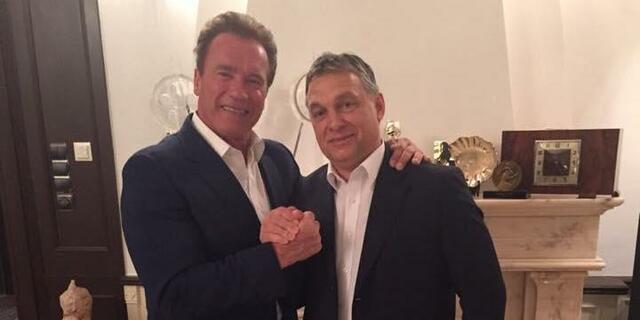The most impressive statues are in Agyagosszergény (roughly pronounced Udge-uh-gosh-sayer-gain), a modest village of just under a thousand inhabitants a mere kilometer away from my own home village of Fertőendréd (Fair-teu-end- raid), which is home to a mere 650 people. My favorites are the Mount Calvary Statue and outdoor Stations of the Cross, both of which are located in the front garden of the village's Roman Catholic school.
I have visited the statue and the Station many times in the past three years, and I made a point of going this Good Friday morning. I had intended to make my way through the stations and photograph all fourteen of them for this post, but the batteries in camera died soon after I photographed the first station.
Disappointed, I took the camera back to the car and walked the stations without taking any photos. My disappointment faded almost immediately. Since I could not take any photos, I focused my attention completely on the mid-reliefs placed in stone. I was inspired by the notion of simply allowing them to speak to me. Though I had viewed the Agyagosszergény Way of the Cross many times in the past, this morning it felt like I was seeing it for the first time.
The Via Crucis in Agyagossergény depicts the traditional, non-scriptural narrative and was likely erected some time in the late nineteenth-century. I found the detail within each relief quite impressive, but by the Third Station I was no longer contemplating each relief from an aesthetic perspective. Instead my imagination took over and conjured up two separate but simultaneous streams of thinking running parallel with each other.
On the one hand, I was present at Christ's crucifixion. I was one of the crowd, watching the event unfold before my eyes. On the other hand, I pictured the Way of the Cross being erected in the modest village more than a century ago. I conjured up images of the men and women who had expressed their faith and devotion by adorning their otherwise drab little village with such statuary.
I walked all fourteen Stations. The morning was bright and sunny. I was completely alone the whole time. After I reached the last Station, I stood before the Mount Calvary statue for a while studying it, and then went home.
I had gone to the neighboring village to take some photos. In the end, I came away with no photos, but an experience I shall never forget.
There is no denying that the essence of Christian symbolism and art has been subverted, inverted, and corrupted by our mainstream secular society. One need look no farther than the recent Notre Dame fire and the outpourings of faux sadness it inspired among the most heinous representatives of anti-Christianity. In this regard, one could argue Christian art and symbolism is inevitably finished.
Nevertheless, every once in a while I do come across examples of Christian art and symbols that somehow manage to transcend the corrosive corruption of Christian aesthetics. And these tend to be rather humble examples that exist in the most unassuming places.
Here's a thought. If Christian symbolism retains any power at all, perhaps it is to be found in small, unknown places like Agyagosszergény rather than in places like Notre Dame in Paris, Canterbury Cathedral in Canterbury, or the Vatican in Rome.
My experience this morning seems to confirm this - at least for me, personally.
I managed to find some photos of the Agyagosszergény Stations of the Cross online and have included these in the slideshow and images below. Also below, I have included a list of the Scriptural Stations of the Cross, which differs significantly from the traditional Via Crucis depicted by the photos I have included in this post.
- Jesus in the Garden of Gethsemane;
- Jesus is betrayed by Judas and arrested;
- Jesus is condemned by the Sanhedrin;
- Jesus is denied by Peter;
- Jesus is judged by Pilate;
- Jesus is scourged and crowned with thorns;
- Jesus takes up his cross;
- Jesus is helped by Simon of Cyrene to carry his cross;
- Jesus meets the women of Jerusalem;
- Jesus is crucified;
- Jesus promises his kingdom to the repentant thief;
- Jesus entrusts Mary and John to each other;
- Jesus dies on the cross; and
- Jesus is laid in the tomb.







 RSS Feed
RSS Feed

